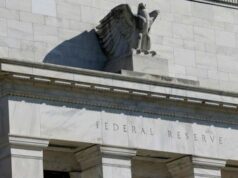Collection of additional oil tariff ends

By Adam J. Ang
THE collection of the additional oil import tariff to raise funds for the government’s pandemic response has ended with the lapse of the Bayanihan law, the oil bureau of the Department of Energy (DoE) said on Sunday.
According to Section 7 of the Executive Order No. 113, the temporary imposition of the said duty shall cease to take effect upon the expiration of the Republic Act No. 11469 or the Bayanihan to Heal As One Law, or when a trigger price is breached, whichever is earlier of the two. The law’s effectivity ended on June 25.
“Tama, end na po as it is now (Right, the tax collection already ended),” Rino E. Abad, director of the DoE-Oil Industry Management Bureau (DoE-OIMB), said in a text message.
Oil companies only started to charge the additional 10% tax on imported crude oil and refined petroleum products to consumers a month after the executive order was signed on May 2. The higher duty raised pump prices by P1.50 to P1.60 per liter (L).
Recent data from the Department of Finance showed the government has generated P1.214 billion in revenues from the temporary tariff on imported oil, as well as value-added tax, from May to mid-June.
Additional revenue from liquified natural gas totaled P283.06 million, while naphtha reached P3,325.
Meanwhile, in preliminary data, the Bureau of Customs (BoC) reported a 72.5% decline in imported oil products to 437.89 million kilograms (kg) in May from 1.592 billion kg in the same month in 2019.
Earlier, the DoE estimated the government could expect to earn as much as P6.78 billion from the tariff hike by the end of 2020.
The order increasing the tax on imported oil was passed to “augment the government’s resources to sufficiently finance the programs and measures to mitigate the effects of the COVID-19 situation, and launch the country towards recovery and rehabilitation.”
The Bayanihan law, which was passed in March, declared a national public health emergency due to mounting number of cases of coronavirus disease 2019 (COVID-19) and gave emergency powers to President Rodrigo R. Duterte in order to manage the country’s response to the pandemic.
House Speaker Alan Peter S. Cayetano told reporters on Friday that Congress will be holding a special session to pass House Bill No. 6953 or the proposed Bayanihan to Recover as One Act, which seeks to extend the effectivity of the Bayanihan law.
“We will wait for any extension [of the law],” Mr. Abad said when asked if the collection of the additional import duty will likewise be extended.
Pump prices have increased in the past seven weeks, reflecting the movement of prices in the global market.
The uptick was primarily due to the rebalancing of supply and demand after oil-producing countries have cut output to resolve the supply glut.
Domestic oil companies have yet to report their fuel price adjustments for this week.
Last week, the DoE reported that since January, price rollbacks amounted to P5.67/liter for gasoline, P9.14/liter for diesel, and P13.39/liter for kerosene.



